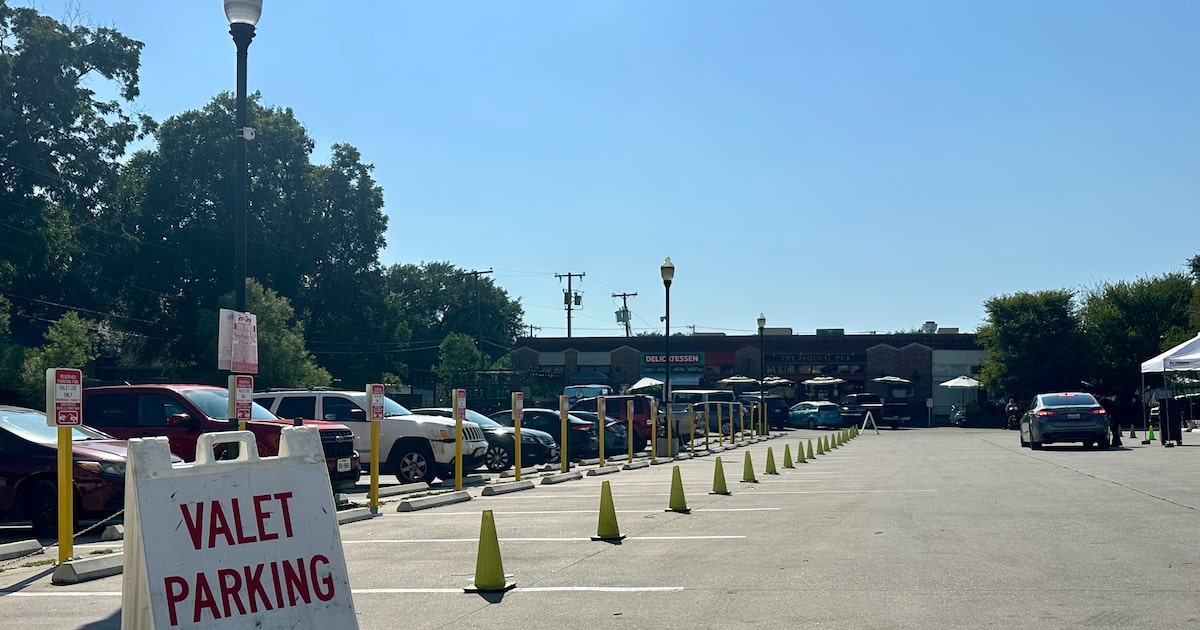If you’re headed to meet a friend for lunch in Lower Greenville or Bishop Arts, give yourself some extra time. You’ll need it while circling the block in search of a parking spot, unless you choose to valet.
For newcomers to Dallas, don’t be caught off guard. Around here, valet parking is as common as a happy hour special, and most restaurants and bars are set up with a stand right at the entrance, ready to take your keys before you’ve even spotted your friend.
Valet parking seems to be multiplying in Dallas, and city leaders should have a conversation about the tradeoffs.
The city requires a valet parking license for valet services that use the public right of way either to stage vehicles or move vehicles to a parking location. Since 2021, the number of active valet parking licenses has more than tripled, according to city data. In 2021, there were 28 permits; this year, there are 100.
Opinion
Valet parking took a hit during the pandemic, when restaurants and hotels — businesses that rely on valet most — were struggling. But now, valet numbers are up.
Every valet operator has to pay an application fee and renew its license annually. In 2021, the fee was $800. Last year, the fee was raised to $1,700.
But while the application fee has gone up, the extra licensing fees for curb parking spaces used by valet services to stage vehicles haven’t changed since 2021. Inside the Central Business District, that’s $250 per space for the first six spots and $1,000 for each one after that. Outside downtown, it’s $350 for the first two spaces, then $1,000 per space beyond that.
According to city officials, valet license permits allow valet services to reserve and use curb lane spaces that otherwise would be public parking.
That means it’s relatively cheaper for valet companies to take over curbside spaces. With more valet licenses across the city but public right of way use fees staying the same, this could make it tempting for operators to claim public spots — and even harder for everyday drivers to find parking on their own.
It’s also worth noting that many valet services in Dallas are advertised as “free,” meaning there’s no upfront charge to the customer, but workers rely on cash tips. For those who appreciate the convenience, that might mean tipping generously. But for others, especially drivers frustrated that valet is the only option or caught without cash, the result might be no tip at all.
While valet parking is convenient, especially in the summer heat or inclement weather, the tradeoffs that come with these services are hard to ignore.
This fiscal year the city expects to generate about $140,000 from valet parking license applications and associated annual fees. This revenue goes toward the city’s general fund used for a broad range of services like public safety and street maintenance.
This amount is a drop in the bucket compared to Dallas’ total general fund of $1.9 billion for fiscal year 2024-25. This limited revenue raises questions about whether the city is undervaluing the public space it’s giving up in the process. If it’s going to sacrifice public right of way for valet, then it should reconsider whether the revenue received is worth it, and whether that money might be dedicated to improving sidewalks and other infrastructure. The streets department has a long list of needs.
When public spaces are set aside for valet, they’re no longer truly public. While they are still available to the general public on a first-come-first-served basis when the valet service isn’t operating, the curb that once belonged to everyone suddenly belongs to paying customers at a handful of restaurants or bars. Dallas should be thoughtful about managing its right of way and whatever revenue it collects off of it.
